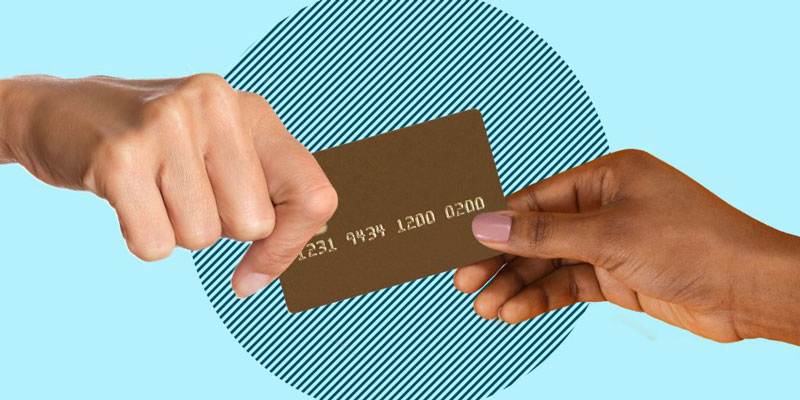Any credit facility provided to two or more persons based on their combined earnings, assets, and credit histories is referred to as "joint credit," and "joint credit" refers to such facility. All aspects of the loan, including the credit limit and the need to return it in full to the original lender, are shared equally by the many partners involved. When one person has little to no credit or a negative credit record, or when two or more persons require access to a huge credit limit that they wouldn't qualify for individually, joint credit may be an option for them.
Comprehending the Concept of Joint Credit
Any debt that is held and owing by two or more persons at the same time is considered joint credit. If two or more people are co-signing a mortgage, they may want to investigate the possibility of filing for joint credit. It is essential to do background checks on everyone who applies for membership credit. In most cases, the credit ratings of all persons involved will be impacted when combined financial planning is done.
Customers can open joint accounts for various credit products, including mortgages, credit cards, loans, and LOCs. When applying for joint credit, each member must fill out their credit application and submit it. These particulars include the individuals' names, dates of birth, addresses, amounts of income, SSNs, and any other information that may be relevant. The application has to be signed by each person as well. By signing the application, each applicant provides the creditor their permission to verify the applicant's credit history.
Despite the potential drawbacks, there are a few compelling arguments in favor of using shared credit. If a couple can pool their resources, they may be eligible for a larger amount of credit than they would be if they both applied for the loan on their own. Because of this, they would be able to make more substantial purchases and share the costs of doing so. Joint credit might be helpful when one of the individuals involved has no credit history or a poor credit score. Because of the joint account, both of them now have access to a credit line that would have been impossible for them to get individually.

Types of Joint Credit
Co-Borrowing
Any additional borrowers who are added to an account are referred to as co-borrowers. Additionally, their names are included on the credit application, as well as the accompanying papers. Therefore, their personal information, including their credit history and income, is utilized as a part of the application process. It helps the lender assess whether or not the parties qualify for the loan. Co-borrowers on an account are jointly and severally responsible for paying off any debt incurred by the account.
Co-Signing
A second party joins on to be accountable for the whole amount of the debt, similar to how a co-borrower would. But there is a significant distinction, and that is the fact that the co-signer does not have access to the account. It's also possible that the co-signer doesn't have access to the account information. A negative history can be added to the credit history of a co-signer if the original signer of the loan or account makes a late payment.
Joint Credit vs. Authorized Users
An authorized user, as opposed to a co-signer, is permitted to utilize the available credit on an account but does not personally assume any responsibility for the debt's repayment. An authorized user is only granted charging capabilities, even though the original party has already filled out the application, acquired the credit, and is responsible for the debt repayment.
If payments are completed on time, adding authorized users to an existing credit card may help improve credit. However, this only works under certain circumstances. On the other side, an authorized user might wreak havoc on the credit score of the originating party by running up more debt. If the original party uses the account often and pays payments on time, authorized users may improve their credit scores due to the account's usage.

Special Considerations
During the divorce process, joint credit may become a contentious topic and a major source of stress. Even if both may have contributed the same amount to the debts, according to the terms of their agreements, one partner may take responsibility for some debts. In contrast, the other partner ultimately pays for the remaining obligations. Even after the parties have divorced, former spouses or partners can continue to affect one another's credit.

Ways To Pay Student Loan With a Credit Card

Share What Kinds Of Assets Are Not Exempt When Filing For Bankruptcy?

Get To Know What Income Level is Considered Rich

A Detailed Guide About the Top Alternatives to a Co-Signer

Debt Consolidation and Debt Settlement

What Is Market Risk? A Complete Guide

Waiver of Medical Insurance

Here Are 5 Ways To Get Your House Ready For A Quick Sale

Annual Financial Checkup

How to Execute a Balance Transfer with American Express?

TransUnion vs Equifax
